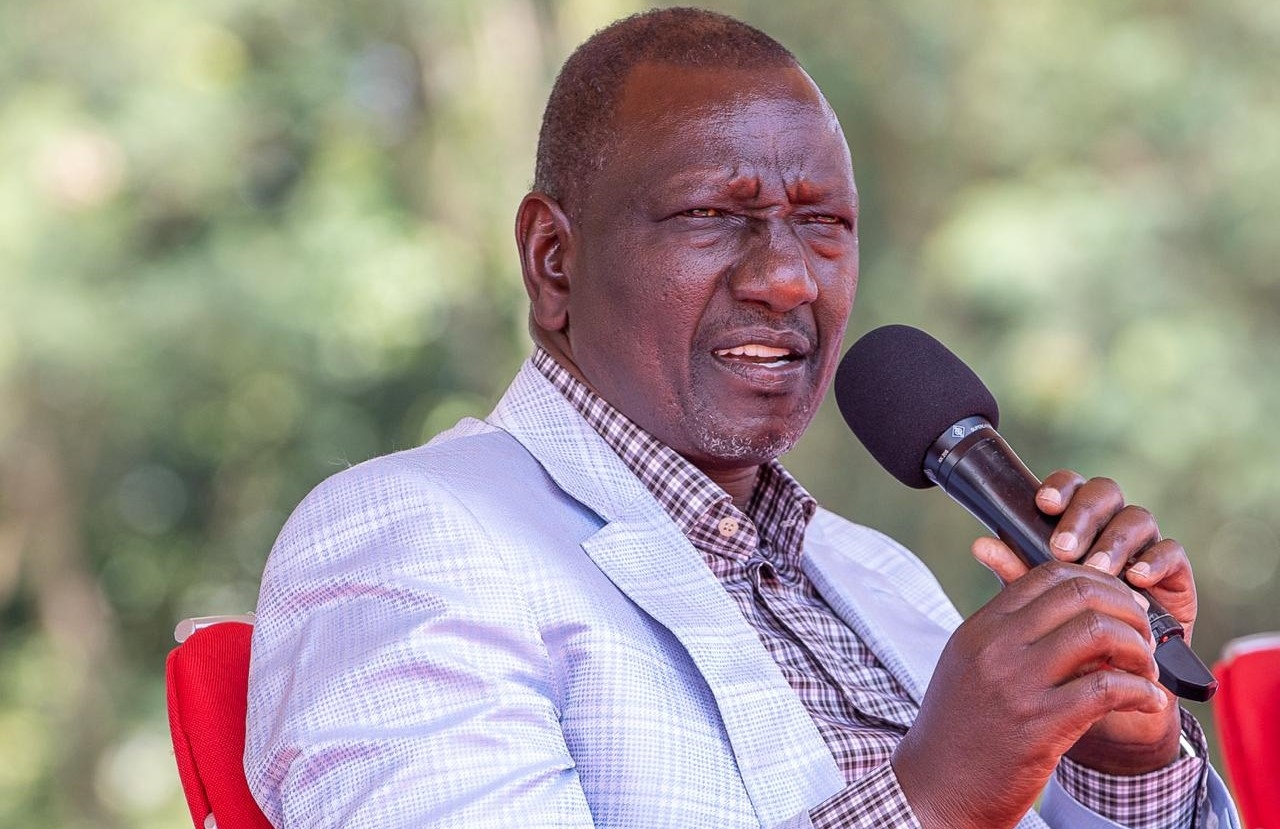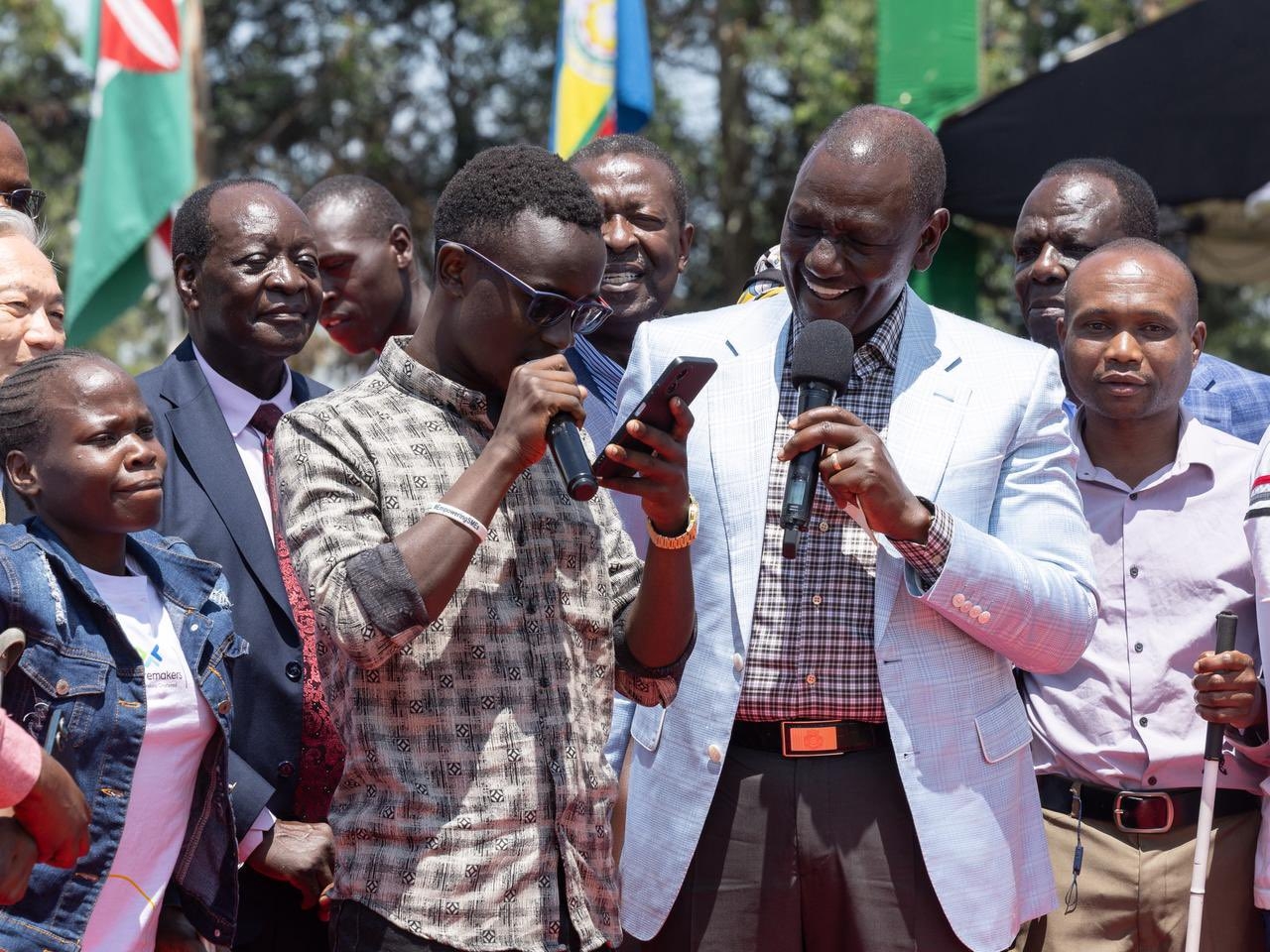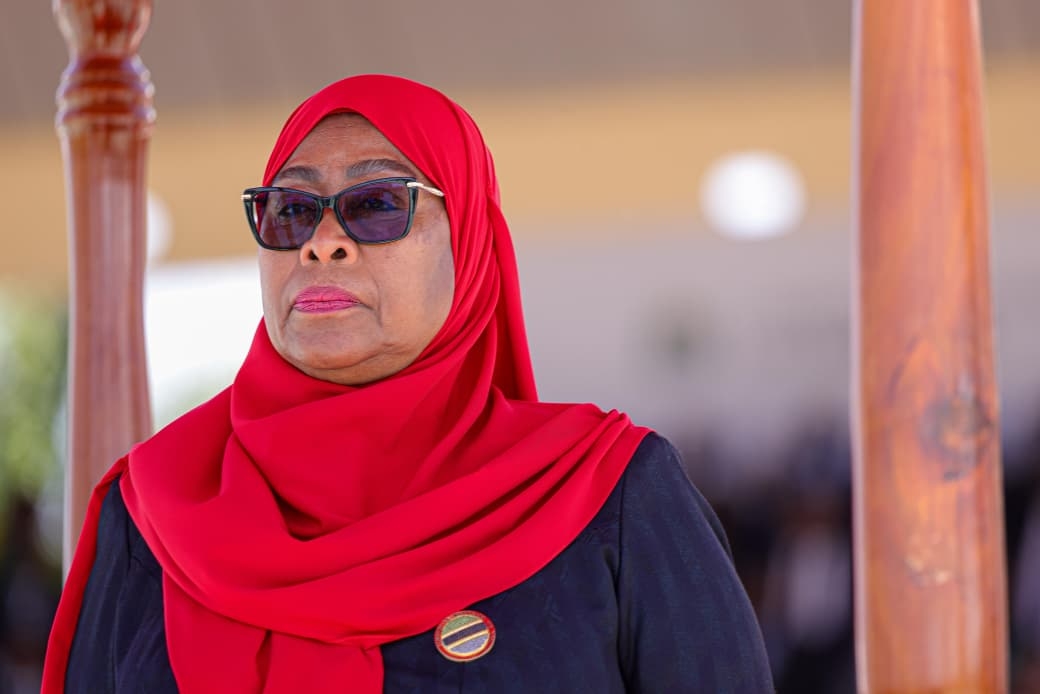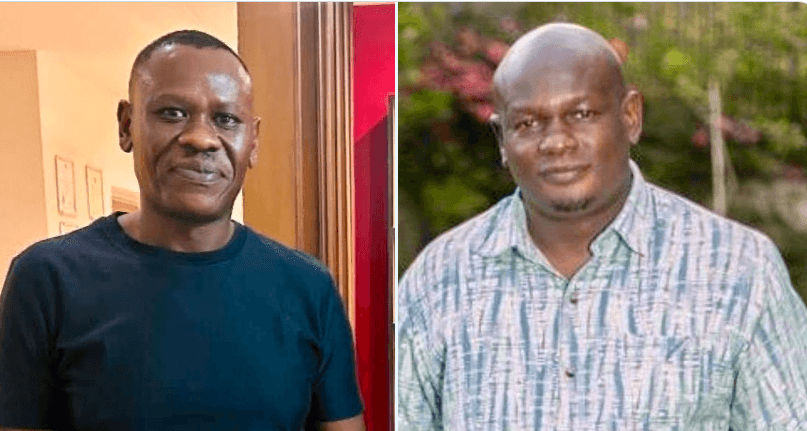Anywhere Tabitha Muthoni looks, what she sees is blood. From the streets to markets to parks, schools, stores and churches — she sees blood that can save her and others.
Muthoni, 35, looks vivacious and energetic, but she survives only through donated blood. Without it, she cannot function. Her condition is known as ulcerative colitis. This is a long-term condition, where the colon and rectum become inflamed.
She has received blood from good Samaritans for 22 years. Muthoni was diagnosed with the condition in 2005.
"When I was 12 years old, I started exhibiting symptoms such as diarrhoea, often with blood or pus or even having blood in my urine. I was afraid of telling my mother about it, so I kept soldiering on," she says.
After a few years, her condition became worse and she had to be rushed to Kijabe Mission Hospital, where she was diagnosed with colitis.
"I did not know I would get five pints of blood transfusion monthly. My mother thought it was malaria or even anaemia, but no, it was more serious than we thought."
A pint of blood may cost between Sh6,000 and Sh17,000. A human being's body has about 10 pints of blood.
"We prayed about it but it was not easy. My extended family started talking ill of my condition, with some calling me a witch who was relying on people's blood to survive."
Even as we speak there are people asking me where I take my blood. Some say it as a joke while others mean what they say.
She would go to the hospital and not tell anyone in her extended family because the criticism was getting too much.
"Even as we speak, there are people asking me where I take my blood. Some say it as a joke, while others mean what they say,” she says.
“When I went to the hospital, some nurses were asking if I was normal since they had never heard about such a condition. They even said I would never get children.”
Muthoni, who is perturbed by the recollections, says she has received unwarranted advice to seek help from herbalists.
“Someone will just come to you and tell you to visit a witch doctor and seek help, but I felt something was wrong since that was against my faith. But you know, you can't prevent people from talking," she says.
She says they searched for a solution to her medical condition until they gave up.
“We went to a place where a pastor told us the reason why I had the condition is because of a forbidden love. That is when we stopped all the search and started praying. We accepted the situation and sought medical attention,” she says.
LIVED TO TELL THE TALE
Today, Muthoni has been married for 13 years. She has three boys, aged 12, nine and one year. She had one miscarriage.
She narrates how one day, robbers became their friends.
"There was a time my husband left his importation job in the evening and was bringing pints of blood to me in Kijabe Mission Hospital. When he reached a stage, he alighted and looked for a taxi on the road. He met some men who told him to surrender everything he had," she says.
A shocked husband said he only had blood for his wife.
"They had to make sure it was blood before letting him leave. They asked him to go and save his wife first. And that is how they let him go,” she says, smiling.
“And that is how they became friends because after that, he met with the men several times until they became good friends. But what if they had stolen the blood? Then I would not have been here by now."
According to the World Health Organisation guidelines, Kenya should be collecting as much as one million units of blood a year.
Kenya's population is 47 million, so even if just 1 per cent of the population donated blood, the country would have at least 470,000 units.
In 2018-19, only 164,000 units of blood were collected. Some 77 per cent of people who donated blood were first-time donors (WHO).
Sometimes you go to the hospital with a donor, then once he or she donates, an emergency case is brought to the hospital and that blood is given to the emergency patient
Muthoni fears the blood shortage sometimes makes it hard for patients to get the transfusion at the appropriate time, and that can mean death.
"Sometimes you go to the hospital with a donor, then once he or she donates, an emergency case is brought to the hospital and that blood is given to the emergency patient," she says as she fights back tears.
"Sometimes it's a matter of bribing them with even Sh5,000, which is too bad. That's what we go through."
Kenya National Blood Transfusion Services head Nduku Kilonzo says the only sustainable way to ensure blood comes in is to create pools of people who donate regularly.
"These people should be able to come back and donate on an ongoing basis. If it's men, they should come four times a year, and women three times a year," she says.
Kilonzo says if 500,000 people can do this, then blood banks would be having so much blood that can save lives.
"We will be way above our optimum need. This will ensure we keep registries of donors to be able to call them and thank them," she says.
BUMPY ROAD
Muthoni says her condition cannot allow her to get a regular job in a regular firm.
"Most of the time you are in the hospital. You can't be employed because nobody will understand you. So we just engage in self-employment so that when you want to go to the hospital, you leave your work and go," she says.
In her business of importing clothes, she only has to go for blood transfusions within a certain time frame, that is, on the 10th of every month between 6pm and 6am.
"I do blood transfusions at night only. We go to the hospital with my partner then leave the hospital by 6am. This will continue until all the five pints of blood we were carrying are transfused into my body," she says.
In a month, Muthoni gets five pints of blood from O-negative donors, which is rare to get.
For emergency transfusions, blood group type O-negative blood is the variety of blood that has the lowest risk of causing serious reactions. Because of this, it's sometimes called the universal blood donor type.
"My mother was very supportive because she would stay with my kids during this period. And she has been there for me and my family. I rely on donors to survive. God has been with me since my diagnosis. As you can see I am still strong, but It's like we are in our own world as recipients," she says.
As with any chronic disease, Muthoni says she can only use NHIF to pay for her hospital bills, but it's not enough.
"It does not cover everything. Every month, you top up about Sh20,000. And you have to set aside this money the same way you set aside rent or even shopping money," she says.
This is not the only challenge she is going through. Muthoni says it's hard to get the right medication.
"When you go to the pharmacy, you get three generic tablets at Sh100 each, and that is expensive. So in most cases, we import from India, where it's a bit cheaper, and we get a six-month-long medication," she says.
Muthoni has friends who go for medication in India over chronic complications, and that is the leeway she sees and uses to get drugs for her condition.
She uses Mesacol Tablet, which is an anti-inflammatory medicine, and Folvite tablet, which is used to treat and prevent folic acid deficiency.
Head of Regional Blood Transfusion Centre in Nakuru Irene Orgut says Muthoni has been in and out of ICU several times.
“So whenever there is a shortage of blood, we make online appeals and in a few minutes, donors show up. This is what has helped so far,” she says.
“She's been receiving a number of units. She will notify us that she needs a transfusion if we don't have blood here, we call blood banks in our other branches.”
WHAT NEXT
Many Kenyans need constant blood transfusion, but the country has a serious shortage problem that needs urgent action.
In 2019, the Kenya National Blood Transfusion Service collected only 16% of the 1 million units the country needed. There are also questions around the mismanagement of the scarce resource.
KNBTS head Kilonzo says to prevent issues of blood sale scams, a technology -based platform has been put in place.
"This is a vein-to-vein management system, where we track the vein collected in a bag through a unique identifier to each bag," she says.
"Then it is separated into components and linked to the original bag, and this will be tracked through a testing process. Then processing of blood components takes place and will be tracked into the transfusing facilities."
Kilonzo says Kenya has also embarked on the registration of transfusion facilities.
"This was done through a circular issued last year. That is going to be the foundation of the accountability system," she says.
Irene Orgut says the government should help with medication.
“Some of these patients have to do a fundraiser just for the hospital bills. If we can get a standardisation that is fair to them, then we can eradicate this,” she says.
Muthoni also appealed to anyone who is able to donate blood not to shy away from helping out.
“When I walk, I see blood. When I visit schools, I see blood. Kenyans should have a habit of donating blood to save people like me,” she says.
Edited by T Jalio




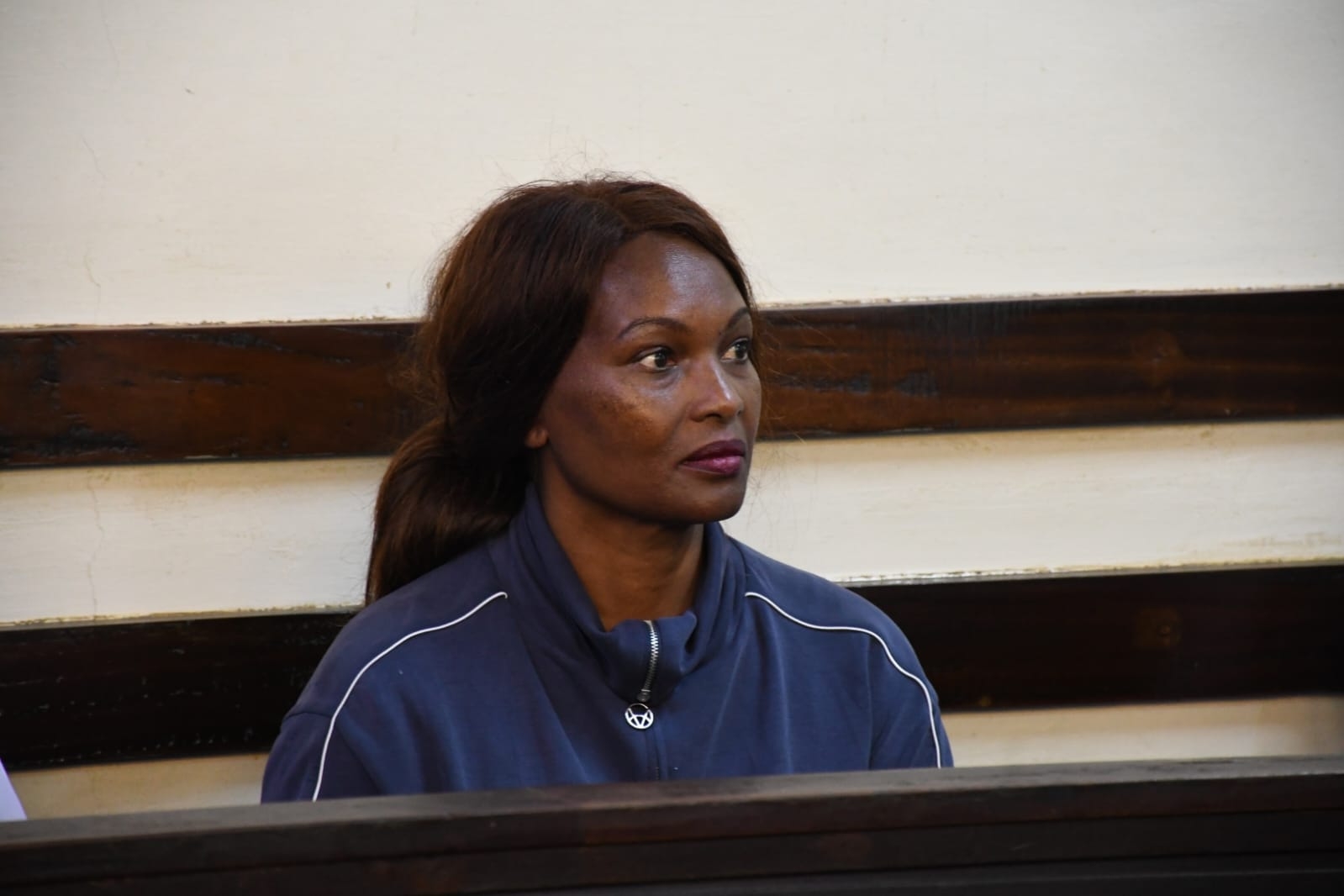

![[PHOTOS] Uhuru leads Jubilee grassroots meeting in Murang’a](/_next/image?url=https%3A%2F%2Fcdn.radioafrica.digital%2Fimage%2F2025%2F11%2F0b2a49cd-52fb-4a92-b9dc-26e253825a4a.jpeg&w=3840&q=100)





